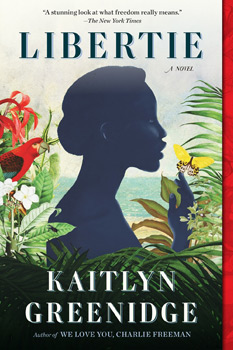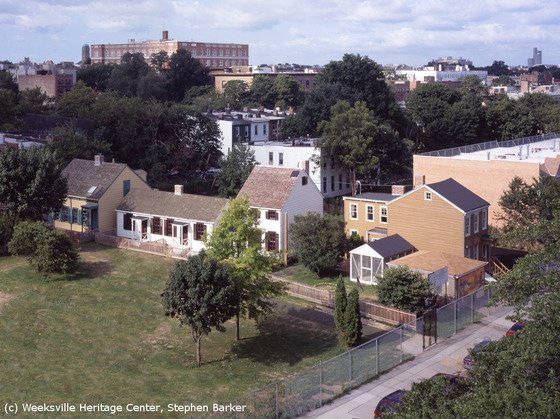Summary | Excerpt | Reading Guide | Discuss | Reviews | Beyond the book | Read-Alikes | Genres & Themes | Author Bio

Set in the Reconstruction era, this unforgettable story explores one young Black woman's attempt to find a place where she can be fully herself – out of the shadow of her accomplished mother in Brooklyn and her traditional husband in Haiti. Perfect for readers of Brit Bennett, Min Jin Lee, and Yaa Gyasi.
Coming of age as a free-born Black girl in Reconstruction-era Brooklyn, Libertie Sampson was all too aware that her purposeful mother, a practicing physician, had a vision for their future together: Libertie would go to medical school and practice alongside her. But Libertie, drawn more to music than science, feels stifled by her mother's choices and is hungry for something else—is there really only one way to have an autonomous life? And she is constantly reminded that, unlike her mother
who can pass, Libertie has skin that is too dark. When a young man from Haiti proposes to Libertie and promises she will be his equal on the island, she accepts, only to discover that she is still subordinate to him and all men. As she tries to parse what freedom actually means for a Black woman, Libertie struggles with where she might find it—for herself and for generations to come.
Inspired by the life of one of the first Black female doctors in the United States and rich with historical detail, Kaitlyn Greenidge's new novel resonates in our times and is perfect for readers of Brit Bennett, Min Jin Lee, and Yaa Gyasi.
In her debut novel, Greenidge demonstrated her skillful storytelling powers, which are also clearly on display here. Libertie is at once a very individual chronicle of the changing, sometimes contentious relationship between a mother and a daughter with competing ambitions, and an exploration of much broader issues. These include the phenomenon of colorism, both within the African American community and more broadly, as well as the vigorous post-Emancipation philosophical debates about the best course forward for newly freed Black people and whether there was any prospect of true "liberty" on American shores...continued
Full Review
 (612 words)
(612 words)
(Reviewed by Norah Piehl).
 Greenidge's character Dr. Cathy Sampson in Libertie is based on the real-life story of Dr. Susan McKinney Steward, the first Black woman to become a medical doctor in New York State. The novel's setting, meanwhile, is based on the historical settlement of Weeksville, which was located in what is now the Crown Heights neighborhood in the New York City borough of Brooklyn.
Greenidge's character Dr. Cathy Sampson in Libertie is based on the real-life story of Dr. Susan McKinney Steward, the first Black woman to become a medical doctor in New York State. The novel's setting, meanwhile, is based on the historical settlement of Weeksville, which was located in what is now the Crown Heights neighborhood in the New York City borough of Brooklyn.
Weeksville was founded in 1827, shortly after New York abolished slavery, and was named after longshoreman James Weeks, who bought several plots of land in the area from Black abolitionist Henry C. Thompson. The settlement flourished and became a destination for free Blacks and newly escaped enslaved people, especially during the decades before the Emancipation ...

If you liked Libertie, try these:

by Nicola Yoon
Published 2025
Thrilling with insightful social commentary, One of Our Kind explores the ways in which freedom is complicated by the presumptions we make about ourselves and each other.

by Dolen Perkins-Valdez
Published 2025
A woman learns the incredible story of a real-life American Kingdom—and her family's ties to it—in this enthralling novel from the New York Times bestselling, NAACP Image Award-winning author of Take My Hand.